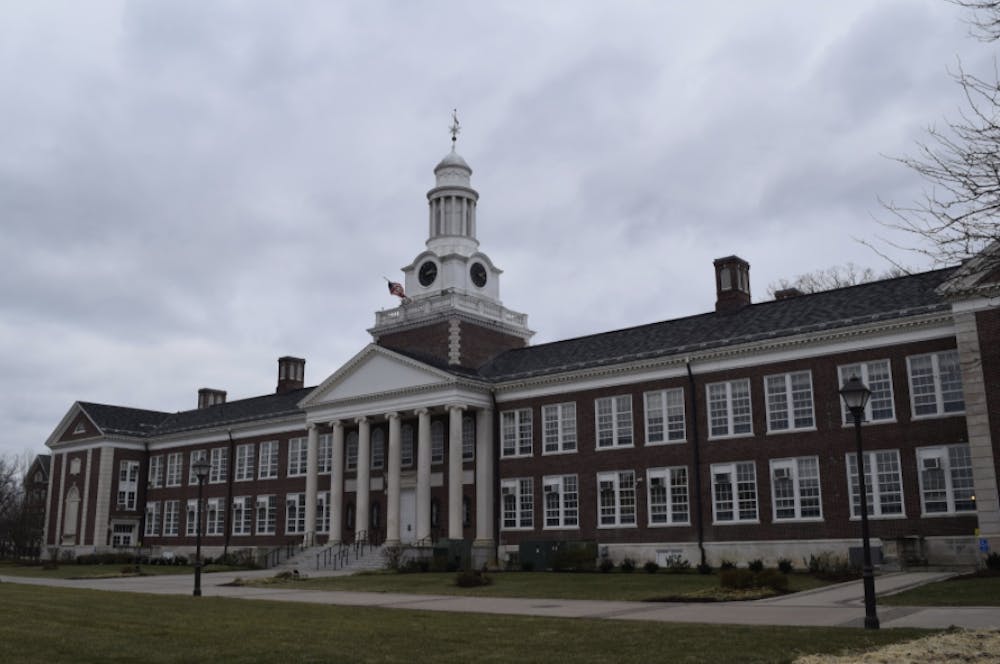By Jax DiEugenio
Staff Writer
The economic implications stemming from the Covid-19 pandemic have devastated nearly every sector around the country and the world. The business model of the College is no exception amid furloughs, cut-backs, and plans for the future.
The institution grounded in academic excellence and performance may be looking to dial back staff as the College feels the financial burden of the pandemic. Outlined in a staff-wide email sent to faculty on Feb. 8, the College will be implementing a Voluntary Separation Incentive Program (VSIP), allowing tenured faculty and librarians the chance to separate from the College into a part-time position in exchange for financial compensation.
As stated in the staff-wide email by Provost Dr. Jeffrey Osborn and the College’s AFT President Nancy Lasher, “As a result of the Covid-19 global pandemic, the College has incurred and is continuing to incur significant expenditures and reductions in operating revenues.”
The aim of the VSIP is to move tenured professors and librarian positions requiring higher salaries towards retirement or part-time work. The College’s reasoning and explanation of the VSIP were outlined in the email.
“Due to the economic crisis caused by the pandemic and to achieve voluntary reductions in personnel costs, the College and AFT Local 2364 have signed a Memorandum of Agreement (MOA) to establish a Voluntary Separation Incentive Plan (VSIP) that will offer a financial incentive to separate from service to certain eligible long-term AFT unit faculty members and librarians,” Lasher and Osborn wrote.

While this program offers a chance for the College to bring in new faculty members, what does this mean for the tenured faculty being offered this alternative? Nancy Lasher explained that the VSIP offers tenured faculty and librarians a departing incentive.
She iterated, “As a tenured professor, the VSIP provides a financial incentive for you to leave TCNJ. Leaving a faculty position that you have held for many years is a difficult decision to make. If you leave on June 30, there is a modest financial incentive.”
Lasher went on to explain that the more popular option among faculty was the Phase 2 option, which prolongs a departing faculty member’s position into the following academic year.
“Several people have told me that if they apply for the program, it would be for Phase 2 because the faculty want to see the students in person again next year before separating from TCNJ,” Lasher said.
Knowing that many faculty members wish to finish their careers in an in-person classroom setting, the Phase 2 component of the VSIP would allow this.
On the option, Lasher explained, “For many people who want to ease into this, there is Phase 2, which provides a lesser financial incentive but the ability to work another year before separating. These programs are not uncommon at universities and colleges, particularly the Phase 2 option. The Phase 2 option is frequently called ‘bridging’ at other schools and it is seen as a way to ease into retirement.”
While the problematic financial implications of the Covid-19 pandemic are extensive, Lasher says that they made decisions that had to be made, explaining that faculty have already made salary sacrifices to avoid the last resort of staff layoffs.
Lasher explained, “We have avoided layoffs by sharing the sacrifice of lower wages. The College budgets carefully and conservatively and I am hard-pressed to come up with an alternative to a VSIP program.”
But what does this mean for students?
Students who chose the College for its reputation as a powerful academic institution are worried that the removal of these tenured faculty members would potentially include the removal of strong educational leaders.
In a Signal interview with Provost Dr. Jefferey Osborn, Vice President for Academic Affairs, his answers indicate that students shouldn’t be concerned. The high standard of academics at the College will rise as a result of the program, Osborn said.
Discussing the nature of how or if this plan will change academics, Dr. Osborn explained, “TCNJ’s commitment to educational excellence will not change...students and families can expect the same high-quality, student-centered education that has led to exceptional outcomes for our students, which are among the highest in the United States.”
He clarified that although new personnel will be brought into the College’s staff, an equal or greater standard of academic excellence will be maintained.
He said, “Many of these positions will be filled with new faculty members and librarians, who will be equally committed to TCNJ’s mission, vision, and values…the VSIP will allow the College to continue offering this same level of educational excellence to future generations of students and to continue to be responsive to demand for academic programs.”
Offering a glimpse into the future of academia at the College under this VSIP, Dr. Osborn explained that hiring these new faculty members will bring forth fresh ideas in newly emerging fields.
On the matter, he stated, “...because student interest and enrollments in different and emerging fields continue to evolve, the College will have the opportunity and greater flexibility to better meet this demand through the strategic hiring of replacement faculty.”







